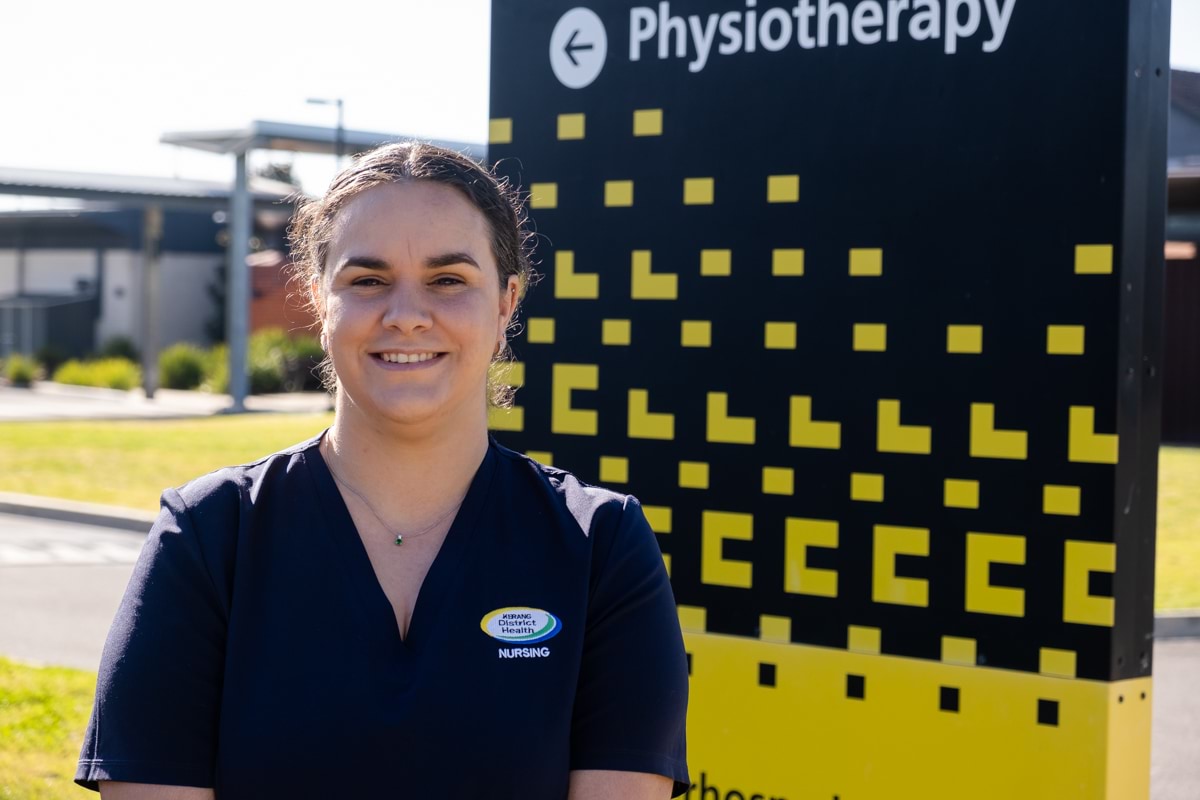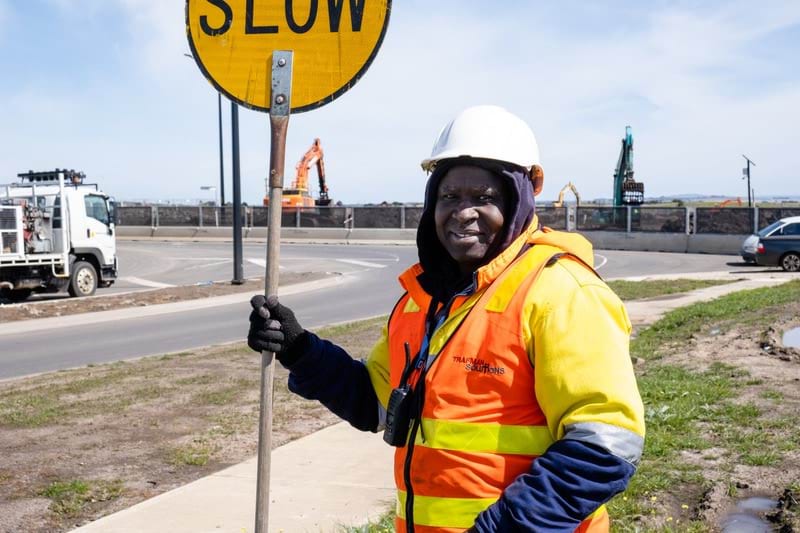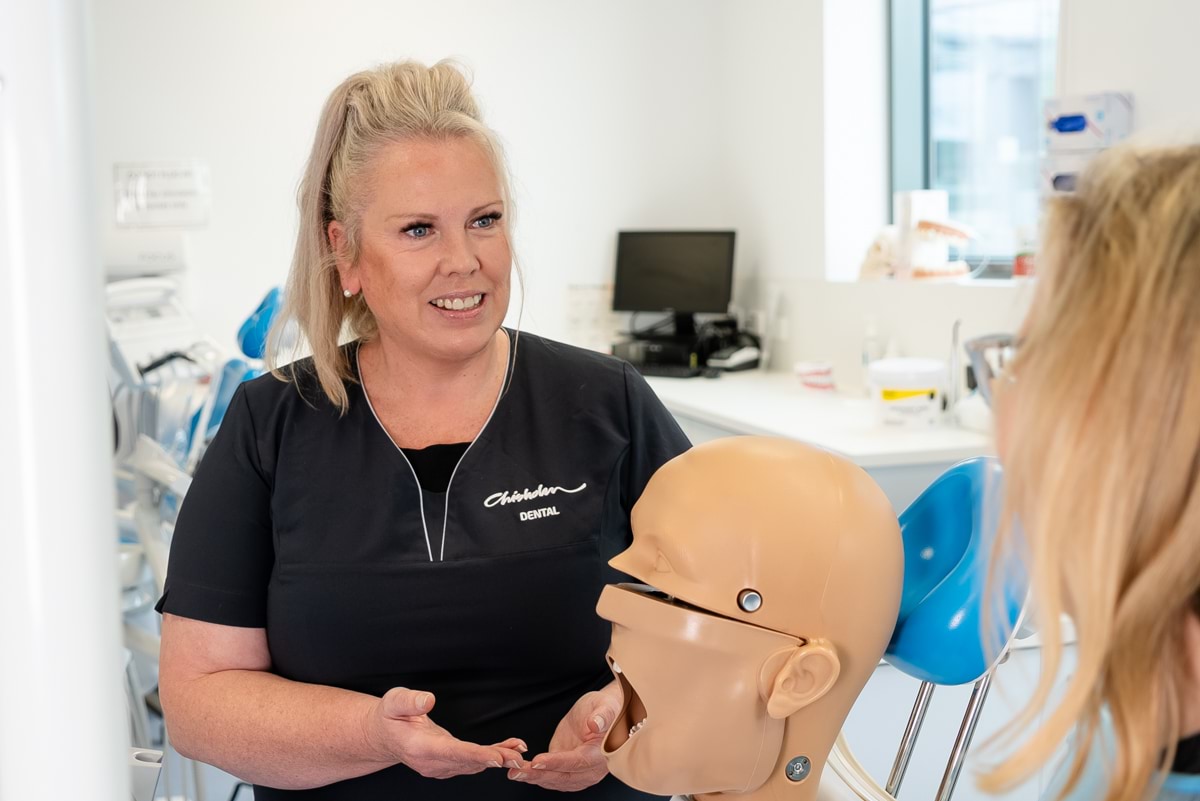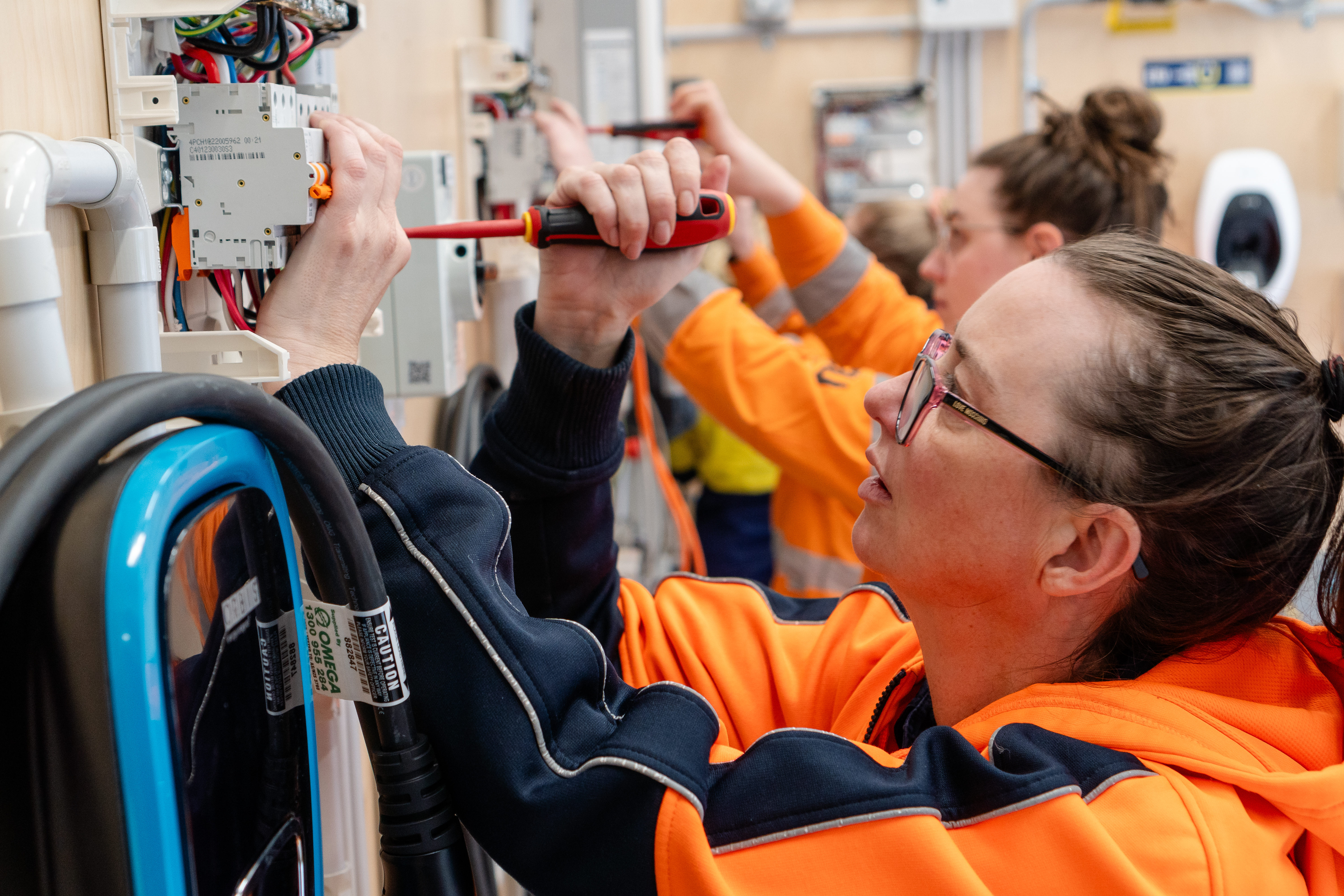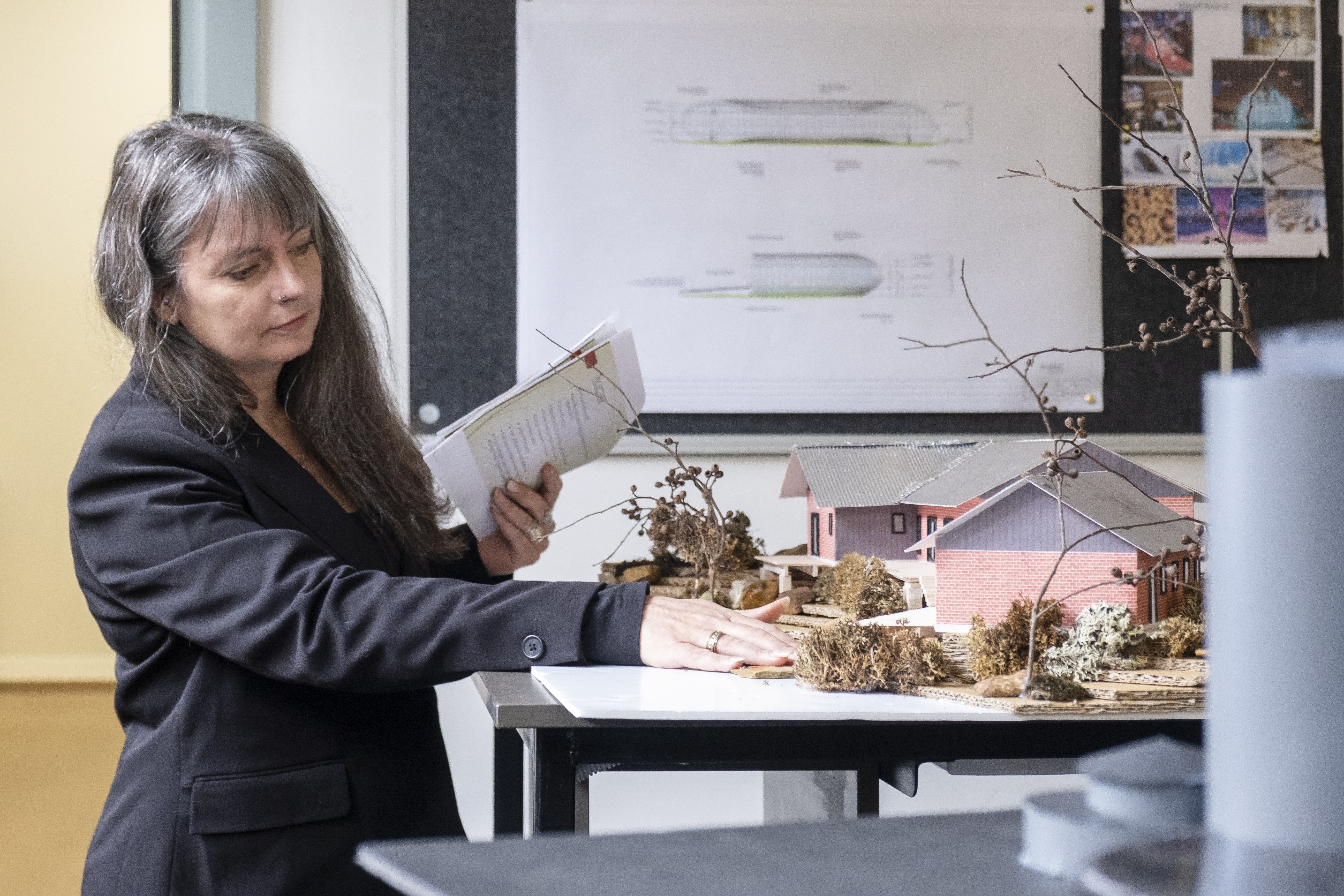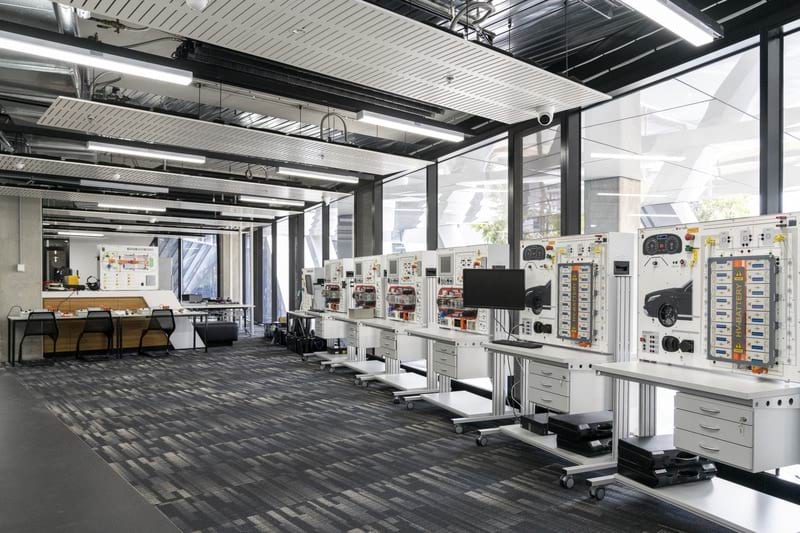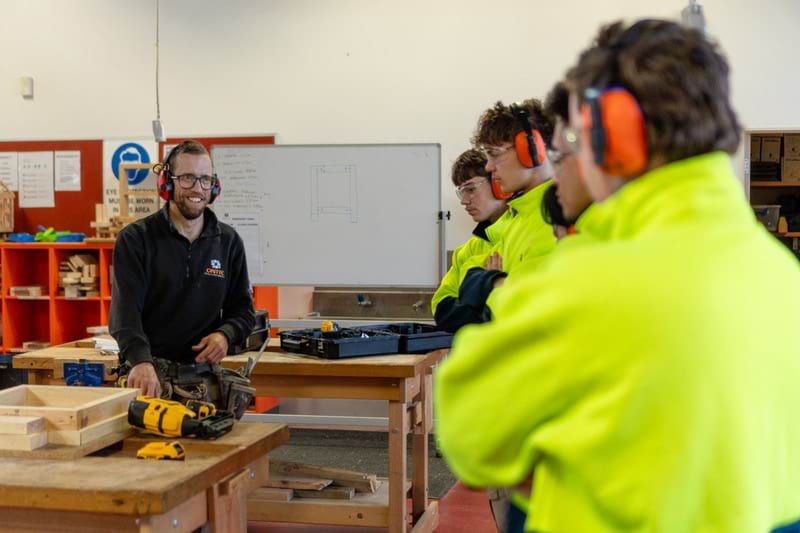- Date:
- 24 Oct 2023
The Victorian Skills Plan 2022 into 2023 actions and initiatives
The Victorian Skills Plan 2022 into 2023 contained 11 actions and 36 initiatives
In developing the annual Victorian Skills Plans, the Victorian Skills Authority (VSA) uses a phased approach to skills reform that supports the short and medium-term objectives of the Victorian Government when it comes to vocational education, training, skills and jobs.
Priorities are spread across the plans, supported by identified actions, recommendations and advice. Each plan focuses on elements of the priorities for targeted actions and recommendations.
The Victorian Skills Plan for 2022 into 2023 (Victorian Skills Plan 2022) contained 11 actions and 36 initiatives to be implemented across industry, education providers and the VSA in the following three years to address priorities in skills provision.
The 25 initiatives scheduled to start in year one are well underway.
The remaining 11 initiatives have staggered start dates and the VSA will provide further updates through future skills plans.
Implementation update
This implementation update covers the first year actions and initiatives, and highlights the plan’s role in prioritising and directing the VSA’s work program and collaboration approach with key stakeholders and partners including the:
- Department of Education
- Department of Jobs, Skills, Industry and Regions
- Office of TAFE Coordination and Delivery.
It also highlights the VSA’s place-based engagement processes as well as its role in leading national vocational education and training (VET) reform and supporting key government priorities.
Key themes
The actions and initiatives underpinning the Victorian Skills Plan 2022 are based on three key themes.
1. Promoting post-secondary education skills and career pathways
All Victorians should be able to access education and training at the level that suits their circumstances and at any point in their lives. Success rests in understanding and responding to the learning needs and aspirations of Victorians.
2. Lifting participation in education and training
Too many Victorians are still excluded from education and training and therefore good jobs. Access to quality and relevant learning for work and life is critical.
3. Delivering the right skills for the jobs of today and tomorrow
Local and global factors will require workers to up-skill and develop transferable skills, allowing flexibility within and across occupations and industries to meet skills demand and increase productivity.
This requires a skills and training system that is responsive to current and future skills needs and has strong connections with industry to ensure it has the capacity and capability for innovation.
Promoting post-secondary education skills and career pathways
Action 1: Start the VET journey at school
Initiative 1.1
Provide up-to-date information about occupations in demand.
✔ Scheduled 2023
Initiative 1.2
Work with industry to identify future job opportunities.
✔ Scheduled 2023
Initiative 1.3
Inform Victorian Certificate of Education’s vocational offerings.
✔ Scheduled 2024
Action 2: Enable learners and workers to make informed skilling and career choices
Initiative 2.1
Collaborate with Skills and Jobs Centres staff to support local learners and employees.
✔ Scheduled 2023
Initiative 2.2
Utilise the Victorian Skills Gateway to highlight training pathways to local occupations in demand.
✔ Scheduled 2023
Initiative 2.3
Highlight core and transferable skills for future jobs.
✔ Scheduled 2024
Action 3: Expand opportunities and approaches for students to put theory into practice during their course
Initiative 3.1
Facilitate industry roundtables to support work placements.
✔ Scheduled 2023
Initiative 3.2
Identify shortfalls in courses and occupations causing supply issues.
✔ Scheduled 2023
Initiative 3.3
Review and provide alternatives for work placements where applicable.
✔ Scheduled 2024
Lifting participation in education and training
Action 4: Build foundation skills to enhance workforce participation
Initiative 4.1
Develop partnerships to provide 'back to work' courses.
✔ Scheduled 2023
Initiative 4.2
Implement training framework for foundation skills.
✔ Scheduled 2023
Initiative 4.3
Continue development of place-based relationships.
✔ Scheduled 2023
Initiative 4.4
Partnerships with Learn Local sector to increase job security and career options.
✔ Scheduled 2023
Action 5: Bridge the gender gap
Initiative 5.1
Conduct annual Gender Impact Assessment of the skills plan.
✔ Scheduled 2023
Initiative 5.2
Monitor the education and employment outcomes of women who enrol in training.
✔ Scheduled 2023
Initiative 5.3
Identify barriers to participation for women with diverse backgrounds across industries.
✔ Scheduled 2024
Initiative 5.4
Partner with local agencies to identify localised barriers to training.
✔ Scheduled 2023
Initiative 5.5
Work towards reducing gender segregation across industries.
✔ Scheduled 2023
Delivering the right skills for the jobs of today and tomorrow
Action 6: Build skills to support Victoria's clean economy targets
Initiative 6.1
Develop Victoria-wide workforce planning insights for training.
✔ Scheduled 2023
Initiative 6.2
Embed clean economy workforce priorities in skills plans.
✔ Scheduled 2023
Initiative 6.3
Develop programs for new clean economy skills with the Office of TAFE Coordination and Delivery.
✔ Scheduled 2023
Action 7: Create innovative solutions to support future skills development
Initiative 7.1
Partner with Victorian TAFE Network to identify new skills.
✔ Scheduled 2023
Initiative 7.2
Lead work to identify digital skills needed across occupations.
✔ Scheduled 2023
Initiative 7.3
Prioritise work to resolve Victoria’s digital skills challenges.
✔ Scheduled 2024
Action 8: Align qualifications to new needs
Initiative 8.1
Work for vocational education and training (VET) qualification reform to support future skills.
✔ Scheduled 2023
Initiative 8.2
Optimise delivery of learning by utilising local accreditation.
✔ Scheduled 2024
Initiative 8.3
Explore new curriculum models and modes of delivery with the Office of TAFE Coordination and Delivery in critical niche occupations.
✔ Scheduled 2024
Action 9: Build the vocational education and training workforce
Initiative 9.1
Develop a Victorian VET Workforce Strategy.
✔ Scheduled 2023
Initiative 9.2
Collaborate across jurisdictions to establish a differentiated approach to teacher qualifications to meet contemporary skills needs.
✔ Scheduled 2024
Initiative 9.3
Develop a VET teacher workforce professional development framework that builds capacity and promotes excellence.
✔ Scheduled 2023
Action 10: Expand reskilling and upskilling opportunities through skill sets
Initiative 10.1
Support skilling in priority areas using the Funded Course List.
✔ Scheduled 2023
Initiative 10.2
Facilitate recognition of micro-credentials for new areas of learning.
✔ Scheduled 2024
Initiative 10.3
Utilise Workforce Skill Set Fund to develop industry relevant skills.
✔ Scheduled 2023
Initiative 10.4
Identify links between skill sets, employment and full qualifications.
✔ Scheduled 2024
Action 11: Drive for higher skills and progression through education and training
Initiative 11.1
Pilot the revised Australian Qualifications Framework for contemporary skills solutions.
✔ Scheduled 2024
Initiative 11.2
Identify new skills via existing skills classifications for active qualifications.
✔ Scheduled 2023
The Victorian Skills Plan supports action on skills
Better planning and decision making
✔ Launched Victorian Skills Authority’s employment forecasts across:
- 19 industries
- 10 regions
- 350+ occupations.
✔ Published seven Regional Skills Demand Profiles
✔ Piloted care economy Skills Labs
✔ Launched Clean Economy Workforce Development Strategy 2022–2023
✔ Co-founded Federated Industry Skills Network
✔ Refreshed Victorian Skills Gateway.
Better access to education and training
✔ Implemented changes to Free TAFE eligibility
✔ Added 40 new skill sets
✔ Conducted a gender impact assessment of the Victorian Skills Plan.
Better training experiences
✔ Increased student placement numbers to meet increasing demand.
Victorian Training Awards 2023 School-based Apprentice of the Year winner
Joachim Lopez-Valoa
Joachim is interested in mechanics and figuring out how things work by taking them apart. He also enjoys boating. Joachim has combined these two passions and is studying a Certificate III for Marine Mechanics at Kangan Institute. He chose a school-based apprenticeship to get a head start by graduating secondary school with two years of experience.
Joachim demonstrates enthusiasm and initiative at work every day. He examines the list of daily tasks and doesn’t wait for instruction from his boss to get started. Once qualified, Joachim is keen to keep working as a marine mechanic.
Start the VET journey at school
Promoting post-secondary education skills and career pathways
Action 1: Start the VET journey at school
All learners should have access to the best available insights and advice to make decisions about post-secondary education and career pathways.
Employment Forecast Dashboard
Through the Employment Forecast Dashboard, first released in August 2022, the Victorian Skills Authority (VSA) provides up-to-date data about current and future employment trends to provide information about the range of employment opportunities available in Victoria. The dashboard is updated annually and provides comprehensive forecasts across industries, regions and occupations. The dashboard identifies key vocational education and training (VET) courses that align with occupations (where applicable) to help people understand the training pathways available to them.
The dashboard informs the Department of Education's current and future offering of priority VET pathways for school students and is used by the Victorian TAFE Network to assist in their annual provision planning.
The Adult, Community and Further Education (ACFE) Board uses the dashboard as a key input in determining the funding of the three Learn Local Industry Practice Networks in aged care, health support services, and building and civil construction.
During 2022 and 2023, the VSA’s metropolitan and regional senior skills advisers engaged with various stakeholder groups (including industry, schools, Learn Local providers and communities) to support them in using the employment forecast dashboard to inform their work, including for service provision and learner career planning.
VET Delivered to School Students system
The Department of Education has strengthened the VET Delivered to School Students (VDSS) system. Improvements include senior secondary certificate reform, a place-based planning portal, increased access to a core set of VET options for schools and funding to address financial barriers to accessing VET.
Victorian Training Awards 2023 Koorie Student of the Year winner
Pearl Dunn
Pearl had a lifelong dream of becoming a nurse. In April 2023, she proudly graduated with a Diploma of Nursing from SuniTAFE. She now has a fulfilling career in aged care.
Pearl’s nursing training was a great complement for her role as a member of the Mallee District Aboriginal Services Board where she works for better health outcomes for the Murray River community. On graduating, Pearl has become a role model for her community, supporting others to embrace nursing careers and showcasing the possibilities for all mature-age students.
Victorian Training Awards 2023 Koorie Student of the Year finalists
Kurin Lelean
Kurin is a queer, transgender Murrinh-Patha man and a passionate advocate for young people’s wellbeing and social justice. He is driven by the desire to support the needs of intersectional communities and create inclusive spaces for young people who feel disenfranchised or confused about heritage, gender and sexuality.
Kurin’s challenging experiences as a child engaging with youth services and foster care homes set his career path to youth work. He chose the Certificate IV in Youth Work at Holmesglen TAFE and aims to share his experience with other First Nations people who are fearful of identifying with their heritage or gender for fear of stigmatisation within and outside their communities.
Jenaya Bartlett
As a Year 10 student, Jenaya was interested in pursuing a career in business or with Victoria Police because of its strong commitment to inclusion in recruitment, especially for Aboriginal Victorians. Undertaking a school-based traineeship, Jenaya enrolled in a Certificate III in Business with Skillinvest. At work, she inspired colleagues to learn about Aboriginal culture.
With determination, Jenaya balanced work and study with activities including being a democracy ambassador to educate her community about the importance of voting. Undertaking a school-based traineeship has provided Jenaya with valuable work experience. On completing secondary school, Jenaya aims to become a protective service officer or Koorie engagement support officer.
Enable learners and workers to make informed skills and career choices
Promoting post-secondary education skills and career pathways
Action 2: Enable learners and workers to make informed skilling and career choices
Skills and Jobs Centres
Located statewide, Skills and Jobs Centres (SJCs) use the intelligence gathered through the dashboard – as well as the skills plan, Victorian Skills Gateway and Regional Skills Demand Profiles – to help learners understand the breadth and benefits of post-secondary education and training pathways and career options, and to advise employers on how they can link up with new graduates and up-skill their existing workers. In 2022, SJCs supported 20,515 Victorians by providing independent career advice, job-readiness support and referrals to training providers and other government initiatives and services.
Victorian Skills Gateway
The Victorian Skills Gateway provides information on more than 500 funded Victorian vocational educating and training (VET) courses. Following the release of the Victorian Skills Plan 2022, the gateway was refreshed to provide easy-to-read descriptions for the 160 most-viewed courses, as well as more accessible information about skills, jobs and vocational education pathways. Since then, the gateway has recorded more than half a million visits, which is a 76% increase from the previous year.
Regional Skills Demand Profiles
In partnership with Regional Development Victoria, the Victorian Skills Authority (VSA) published seven Regional Skills Demand Profiles in 2023, which provide another rich source of information that education and training providers, industry, learners, workers and career advisors can use to identify place-based workforce skills needs and insights on key industries and regions. The profiles give current and prospective learners practical information about training, skills and jobs in demand in Victoria, and provide localised information and job forecasts for each region.
Industry Advisory Groups
Through 10 Industry Advisory Groups (IAGs), the VSA works closely with industry representatives to identify opportunities available for learners and workers in terms of jobs and long-term careers. Expert advice from the IAGs feed into the Funded Course List to ensure it continues to meet industry needs, as well as other initiatives that help industry access the skilled workforce it requires.
Career education
The Department of Education is transforming career education in schools so students can make informed choices for secondary school and beyond. This includes supporting students into high quality work-based learning opportunities and strengthening industry engagement to provide 10,000 work experience placements in clean energy and priority industries.
Additionally, all Year 9 students in government schools have access to My Career Insights which provides access to Morrisby, a world-leading online career diagnostic tool. My Career Portfolio supports students to develop career action plans and increased funding to upskill career practitioners with a post-graduate qualification means an increasing number of students will have access to a contemporary and qualified careers workforce at their local school.
Expand opportunities and approaches for students to put theory into practice during their course
Promoting post-secondary education skills and career pathways
Action 3: Expand opportunities and approaches for students to put theory into practice during their course
Through work placements, students are better able to understand their course content in a workplace setting (that is, applying theory to practice) which supports their ongoing engagement in education and training. Once complete, work placements continue to benefit students in their career journeys by developing networks and clarifying career plans.
Practical placement officers
To assist students in securing placements, practical placement officers have been funded for all Victorian TAFE Network providers.
To assist the work undertaken by practical placement officers, an information and communications technology (ICT) system has been implemented to manage placements across the Victorian TAFE Network. This is now used by over 90% of Victorian TAFE Network providers.
Initiatives in focus – GOTAFE
GOTAFE’s innovative approach to student placement
During the COVID-19 pandemic, GOTAFE ran a project that placed Certificate IV in Mental Health students in aged care residential facilities.
GOTAFE designed a proposal that mapped recovery-orientated principles, which are fundamental to the Certificate IV in Mental Health placement requirements, to the placement project. A strong emphasis on person-centred care, which prioritises individual autonomy and empowerment and is followed when caring for a person living with dementia, aligned directly with the mental health recovery orientated approach.
As part of the project, and to prepare GOTAFE students to work in a dementia-specific ward, students undertook free micro courses on dementia. Student feedback was that the courses aligned well with their current mental health studies.
Usually, GOTAFE’s Certificate IV in Mental Health students are placed in alcohol or other drugs or residential mental health facilities. This project placed students in a less intense setting, which, in some cases, better suited the student’s capability and preference.
There are many benefits in placing a Certificate IV in Mental Health student in an aged care dementia setting, not only for the student’s professional development but also for the person living with dementia.
Build foundation skills to enhance workforce participation
Lifting participation in education and training
Action 4: Build foundation skills to enhance workforce participation
Accredited and pre-accredited foundation skills support skill development across a range of areas to enable individuals to participate in education and training, work and life. This includes language, literacy (reading, writing and oracy), numeracy and digital, and employability skills (such as teamwork, planning and organising).
Through its network of around 230 Learn Locals in 2023, Victoria’s Adult Community and Further Education (ACFE) sector is helping people acquire and develop these skills.
Learn Local Industry Practice Networks
Since the release of the Victorian Skills Plan 2022, Learn Local Industry Practice Networks have been established across the aged care, health support services, and building and civil construction industries to support Learn Local providers to work together to build capacity and capability, and engage with employers in the design and delivery of pre-accredited training.
Stronger by Design model
Following the release of the first skills plan, the pilot of the Stronger by Design (SbD) model continued. It involves working with Learn Locals to co-design and update the Pre-Accredited Quality Framework tools and processes to sharpen the learner focus of pre-accredited training.
The SbD model supports the pre-accredited program model to better target and support learners who have experienced educational disadvantage. It seeks to enhance the quality and impact of pre-accredited foundation skills training while retaining flexibility and place-based responsiveness to learner needs. The SbD model also aims to identify the learners most likely to benefit from a pre-accredited program.
Just-in-Time initiative
The Just-in-Time initiative supports industry partnerships between Learn Locals and employers, and enables educationally disadvantaged learners to gain work contextualised core skills required to transition to work or to remain in an entry-level job. These partnerships strengthen the Learn Local providers’ responsiveness to existing and future workforce needs in communities by developing relationships and
co-developing programs with local industry.
The place-based partnerships benefit industry sectors facing key skill shortages, including:
- construction
- hospitality
- health care and support
- cleaning
- agriculture and horticulture
- food processing
- manufacturing.
Place-based officers
The Victorian Skills Authority's place-based officers play a key role in developing and progressing place-based relationships between Learn Local providers, local communities and industries to understand and support current core skill shortages and future industry workforce needs. One example is connecting Federation TAFE and Horsham’s Centre for Participation to ensure continued delivery of specialised training in the region.
The Office of TAFE Coordination and Delivery is actively working with the Victorian TAFE Network providers to assist TAFEs in planning their delivery to align with the training needs outlined in the skills plan, including those related to foundation skills.
Victorian Training Awards 2023 Community Training Provider of the Year finalist
Mountain District Learning Centre
As well as providing a raft of community education and skill development programs for people of all ages, Mountain District Learning Centre established The Cottage Program for 14 to 18 year-olds as an alternative for young people who find mainstream school environment challenging or overwhelming.
The centre focuses on building language, literacy, numeracy and digital literacy skills and has support systems for those who experience acute social anxiety and other related mental health challenges.
The Cottage Program has achieved a 95% success rate – out of 80 students enrolled over the past three years, 74 achieved a Year 10 alternative pass, eight went on to employment and 66 continued into further study.
Victorian Learn Local Awards 2022 Pre-accredited Learner (skills for work) winner
Felimon Asel
Felimon is a leader in his community and a strong advocate for education. Being one of the first Sudanese people to arrive in Melbourne as a refugee, he has helped many new arrivals set up their lives in Australia. To improve his work options, Felimon completed several English certificate courses at Prace, a provider of adult community education programs.
Felimon enrolled in Prace’s Civil Construction Labourer course, co-designed with Winslow to develop employability skills for work in civil construction. This was a turning point in Felimon’s life, bringing the opportunity for employment growth and fulfilment. Felimon’s commitment was exceptional and his dedication to learning made him an outstanding role model for the class. As a result, he was offered employment with Winslow.
Dedicated to his family and community, Felimon encourages other Sudanese people to get involved in learning. He reminds them of the importance of education as a means of obtaining stable employment to build a better life in Australia.
Bridge the gender gap
Lifting participation in education and training
Action 5: Bridge the gender gap
Attracting more women into the labour force and increasing the number of female workers, particularly in industries and occupations where women are under-represented, is critical.
The Victorian Skills Plan 2022 included several initiatives for implementation, including an action plan for delivery. Three pillars support the first year of this plan:
- A gender impact assessment (GIA) of the skills plan.1
- Analysis to monitor the education and employment outcomes of women who undertake vocational education and training (VET).
- Initiatives to engage with women from diverse backgrounds and promote training that leads to employment.
It is important that programs, initiatives and strategies, such as those in the skills plan, meet the needs of women, men and people who are gender diverse, lead to better and fairer outcomes, and allow all people equitable access to opportunities and resources.
A GIA can help with these by evaluating whether a policy, program or service:
- does everything it can to ensure resources are distributed and used equally
- considers the different needs of people of all genders
- benefits all through equity of access
- has the potential to influence broader social norms and gender roles in society.
The Victorian Skills Authority (VSA) completed a GIA of the Victorian Skills Plan 2022 in collaboration with the:
- Office of the Victorian Commissioner for Gender Equality
- Office for Women within the Department of Families, Fairness and Housing
- Department of Education.
The assessment showed that Victorians of all genders were adequately included in the decision-making process behind the plan.
The GIA continues to inform future VSA work such as better understanding of the impact of gender inequality in VET and in labour market participation. Other initiatives include identifying opportunities to address barriers to equitable participation in education and training, and increasing the number of female workers, particularly in industries and occupations where women are under-represented.
To improve female participation in education and training, the VSA has undertaken work to monitor, analyse and report on the education and employment outcomes of women who enrol in training.
Victorian Student Satisfaction Survey
The VSA’s Victorian Student Satisfaction Survey 2023 shows women primarily engage in training to find better employment or to return to the workforce. It also finds that women who undertake government-funded training have improved their employment outcomes. Women are also increasingly successful in achieving their main reason for training (74.5% in 2023 compared to 72.6% in 2022). In 2023, more than 80% of women were employed post-training, and more than half of them achieved an improved employment status after training. There were over 39,000 female respondents (who undertook accredited training) in the 2023 survey.
TAFE Network Statement of Priorities
Many women are employed in high demand occupations after completing training. In 2022, around 22% of female VET students were employed in one of the top 20 occupations in demand. The Victorian TAFE Network is tracking and reporting on the participation of women in non-traditional trades such as ICT or construction as detailed in the TAFE Network Statement of Priorities.
Eligibility for government-subsidised training
The recent changes to eligibility for government-subsidised training is supporting more women into training and employment. In January 2023, the government removed the once-in-a-lifetime limit on Free TAFE, enabling all learners to access more than one Free TAFE course and continue their studies in priority areas, many of which employ a high proportion of women.
The government also removed the up-skilling rule, which means that more Victorians can access government-subsidised training regardless of the qualifications they already hold. In 2022, women represented 58% of Free TAFE commencements.
Notes
1 Commission for Gender Equality in the public sector (2023) Introducing gender impact assessments(opens in a new window)
Victorian Training Awards 2023 Industry Collaboration winner
The Women in Apprenticeships Victoria Electrical project
Attracting women to electrical trades was the goal of the collaboration project, Women in Apprenticeships Victoria Electrical (WAVE). The collaboration involves the:
- Victorian Electrical Trades Union
- Holmesglen Institute
- Trades Hall Council
- Australian Women in Solar Energy
- Department of Education.
A comprehensive approach was taken from engagement to placement, supported by strategies to attract, recruit, train and retain women in electrical apprenticeships. The program successfully drove change and provided access to participants.
More than 100 women got involved in Try a Trade Day – Women in Trades. Around 33 participants commenced a women-only pre-apprenticeship course, and 94% completed the pre-apprenticeship program. Many are now employed as apprentices in various Victorian companies.
Victorian Training Awards 2023 Vocational Student of the Year winner
Barbara Muller
Barbara’s lifelong dream was to study buildings. Fascinated with construction and design, she wanted to understand how buildings were constructed. This led to her enrolling in the Advanced Diploma of Building Design (Architectural) at Federation TAFE.
The course elevated her self-confidence and problem-solving skills. She took on leadership roles and mentored fellow students who needed help. After completing her studies in 2022, she was awarded Federation’s EJT Tippett Outstanding Achievement Award.
Now, she is heading confidently into a career in the building and construction industry and has begun the Certificate IV of Training and Assessment to become a vocational education and training (VET) trainer.
Build skills to support Victoria's clean economy intentions
Delivering the right skills for the jobs of today and tomorrow
Action 6: Build skills to support Victoria's clean economy intentions
The government has publicly committed to decarbonising the economy and achieving net zero emissions by 2045.2
Clean Economy Workforce Development Strategy
Following the release of the Victorian Skills Plan 2022, the government released the Clean Economy Workforce Development Strategy 2023–2033(opens in a new window) to meet the workforce training needs for the clean economy transition. The strategy is a 10-year framework that informs government planning and investment in the workforce development that Victoria will need to support its goal of reaching net zero emissions. The priorities identified in the strategy include developing a new skilling approach that supports the development of transferable and technical skills required by the clean economy sector, such as the co-development of education and training (among industry, supply chains and education providers) to support the sector. The implementation plan for the strategy is now under development.
The Office of TAFE Coordination and Delivery is undertaking a comprehensive review of the current and potential training contributions that the Victorian TAFE Network can make in the transition to the clean economy. The outcomes of the review will support the realisation of Victoria’s clean economy vision. It is also working with the Victorian TAFE Network to strengthen approaches to addressing skill and training gaps in emerging fields related to the clean economy.
State Electricity Commission
The Victorian Government is bringing back the State Electricity Commission (SEC) – driving down power bills and creating thousands of jobs in renewable energy.
The SEC Energy Jobs and Skills Forum was held on 29 June 2023 with more than 300 participants including Traditional Owner Groups, employers, Victorian TAFE Network providers, universities, technical schools, training providers and peak bodies. The data and insights gathered through the forum are key inputs to the Victorian Energy Jobs Plan (currently in development) and the business case for the new SEC Centre of Training Excellence.
Notes
2 Department of Environment, Energy and Climate Action (2023) Climate action targets(opens in a new window), 23 May 2023.
Kangan Institute electric vehicle lab
Kangan Institute's Automotive Centre of Excellence at Docklands
A new purpose-built electric vehicle (EV) lab, which opened in April 2023, will help bridge the emerging skills gap of specially trained technicians in Australia.
The advanced automotive and electrical lab at Kangan Institute is home to the latest technology in electronic training boards and simulators,
new computers and software programs, and sophisticated teaching aids. The equipment can simulate almost all variants of EVs, making it flexible and adaptable to current and future markets. The facilities will improve the learning experience of new students and apprentices, as well as deliver a wide range of EV-specific accredited courses to up-skill existing industry technicians, ensuring Victorian automotive technicians can thrive in an evolving workforce.
A new apprenticeship program specialising in EVs will provide technicians with the opportunity to train and work in an emerging industry.
This investment, delivered through the $12 million TAFE Equipment and Facilities Fund, will help Victoria achieve its target for EVs to comprise
50% of all new light-vehicle sales.
Create innovative solutions to support future skills development
Delivering the right skills for the jobs of today and tomorrow
Action 7: Create innovative solutions to support future skills development
Innovation and technological disruption are leading to new products, services and changes to work and lifestyle. New occupations are emerging and for many existing occupations, the skills required are changing. The skills system must keep up with future changes and shifts in industries and jobs.
Through Skills Labs and place-based co-design workshops, the Victorian Skills Authority (VSA) is partnering with key stakeholders to deliver an innovative approach to skills development and delivery, a key recommendation from the 2020 Future skills for Victoria: driving collaboration and innovation in post-secondary education and training (the Macklin Review).
Skills Labs
Skills Labs are a collaboration and engagement platform to test and assess new skills solutions. They bring together:
- industry
- employers
- Victorian TAFE Network providers
- other registered training organisations (RTOs)
- the adult and community education sector
- the higher education sector
- communities
- students
- experts
to gather their perspectives, discuss core issues and brainstorm innovative solutions to improve competitiveness, productivity, inclusiveness and sustainability. Their focus is primarily the ‘skills frontier,’ where they identify and address future skills needs.
In doing this, the labs aim to drive improvements to student learning and skill building; contribute new approaches that could shape strategic reform or directions at the state or national level; and provide information about the processes, conditions and approaches that work within a lab to be used to improve subsequent labs. They may also result in the re-design of teaching and assessment methods to be responsive to current and future industry needs.
In partnership with Holmesglen Institute, the first Skills Lab is focusing on the care economy. The lab is exploring changes to the Diploma of Nursing to better prepare graduates to be agile, appropriately skilled and future focused. A key part of the lab is to redesign teaching, learning and assessment practices to provide a more engaging experience for students, resulting in improved learning and ensuring that graduates have the skills that meet the contemporary needs of employers.
The lab will conclude in early 2024 but initial findings are already being shared with other Victorian TAFE Network providers, registration bodies and key stakeholders, demonstrating that innovation in aspects of the delivery of qualifications can be created through highly collaborative co-design processes.
The final report will outline evidence-based approaches that improve skill-building in the Diploma of Nursing, such as new learning resources and assessment practices that can be adopted by other vocational education and training (VET) providers. Other findings are expected to inform policy makers and regulators on areas for improvement to ensure the currency of VET qualifications.
The second Skills Lab will focus on education and training challenges in meeting clean energy skills needs.
Regional engagement officers
In addition to Skills Labs, the VSA’s regional engagement officers are proactively supporting stakeholders to access government programs and initiatives to progress innovative place-based approaches to resolve skills and training issues.
Initiatives in focus – Murrindindi
Place-based engagement to design innovative solutions for critical workforce needs
The Victorian Skills Authority (VSA) worked with the Murrindindi Aged and Disability Workforce Development Network to progress a project proposal under the Workforce Training Innovation Fund aimed to support attraction and retention of staff across several occupations in the sector.
Together with the network, the VSA’s senior skills advisers established a design team comprising of representatives from business, the training sector, government and the community. The VSA supported the design team through a series of facilitated workshops and out-of-session exercises which led to the development of a final project model that has been informed, tested and refined by a wide range of stakeholders.
The final model outlined a range of new approaches, ways of collaboration and a place-based response to address the challenges and barriers identified through the stakeholder engagement process.
Align qualifications to new needs
Delivering the right skills for the jobs of today and tomorrow
Action 8: Align qualifications to new needs
Using existing skills classification tools, the Victorian Skills Authority is exploring approaches to better describe changing skills demand in the Victorian economy. This work has the potential to identify new and emerging skills to supplement existing qualifications.
Approaches to better describe changing skills demand
To be effective in work, the employee of the future requires more than technical skills. Many of the skills employers search for in candidates include core skills, defined by the International Labor Organisation as social and emotional, cognitive and metacognitive (that is, the ability to develop an awareness and understanding of their own thought processes) basic digital skills and basic skills for clean economy jobs. Both core skills and technical skills are required by individuals if they are to succeed in work and life.
Initial work has already highlighted the need for an education and training system that fosters and develops core and technical skills. The changes to eligibility for government subsidised training and the removal of the up-skilling rule are helping Victorians get these skills.
The mix of skills demanded within occupations is also changing. An occupation-based definition of skills does not consider new or emerging skills requirements within the occupation itself. Occupation profiles based on skills show that while employability skill requirements (such as teamwork, planning and organising, communication, literacy and numeracy skills) vary across occupations, these are important for all jobs.
Drive for higher skills and progression through education and training
Delivering the right skills for the jobs of today and tomorrow
Action 11: Drive for higher skills and progression through education and training
Since the release of the Victorian Skills Plan 2022, the Victorian Skills Authority (VSA) has also worked with the national skills body, Jobs and Skills Australia, and the Department of Employment and Workplace Relations to progress reforms in the skills and training system.
Federated Industry Skills Network
The VSA is also playing a leading role in driving the development of the Federated Industry Skills Network (FISN).
FISN is a platform for information-sharing and developing communities of best-practice, as well as an opportunity for states and territories to co-ordinate advocacy to the Australian Government on key skills issues, including those that underpin actions eight and 11.
FISN acknowledges the importance of connection and engagement, as well as the rich insights that can be gained from collaborative efforts across states and territories. It coordinates industry advice, advocacy, research and practice to support the work of the Jobs and Skills Councils and brings a shared approach to national training package review and development.
Victorian Training Awards 2023 Teacher or Trainer of the Year winner
Thomas Patterson
After 15 years working in the construction industry as a carpenter and licensed builder, Thomas transitioned into vocational education and training (VET) teaching to share his knowledge and skills with students.
Teaching at the Outer Northern Trade Training Centre, Thomas delivers both the Certificate II in Building and Construction Pre-Apprenticeships
(Carpentry) and the Certificate I in Construction Pathways.
To prepare students more thoroughly for the workforce, Thomas implements real-world tasks, replacing small-scale models with house-sized wall frames, roof structures and sub-floors to enhance the student learning experience. Thomas also collaborates with plumbing and electrical trade work colleagues to assist them to apply the same approach in the classroom, resulting in rapid improvement in student output across the centre.
Build the VET workforce
Delivering the right skills for the jobs of today and tomorrow
Action 9: Build the VET workforce
Delivering the skills needed to support government priorities in areas such as clean economy, early childhood and health care will not be possible without a strong, skilled and experienced vocational education and training (VET) workforce. The Victorian Skills Plan 2022 acknowledged the need for VET workforce growth and renewal.
VET Workforce Development Strategy
The Victorian Skills Authority (VSA) has commenced work on a VET Workforce Development Strategy and, over the next two years, will engage diverse stakeholders in collaborative problem identification and solution design. The strategy will deliver evidence-based recommendations for action at a state, regional and local level, with the aim of building a sustainable and highly capable VET workforce to meet the changing skills requirements of the Victorian economy.
VET Development Centre
The VSA continues to support the VET Development Centre (VDC) as it designs and delivers professional learning to enhance the skills and knowledge of VET teachers, quality managers and leaders.
The VDC is delivering professional learning to support learning and teaching quality, quality in Skills First delivery and Learn Locals. Through its teaching fellows and workforce development grants, the VDC is enabling VET professionals to be engaged in sustained learning programs that support sharing and improved practice, and deliver improvements in services to support VET teachers.
International Specialised Skills Institute
The VSA also works in partnership with the International Specialised Skills Institute to fund the International VET Practitioner Fellowships. The fellowship program primarily provides opportunities for people employed within Victorian Government contracted registered training organisations (RTOs) to undertake applied research in an international context and apply their learnings in a Victorian context upon their return. Recent and current fellows have focused on capacity and capability building in the VET workforce, developing innovative teaching practices to support diversity and inclusion, and supporting new educators.
Professional development programs
Foundation skills underpin a mobile workforce and support Victorians to participate in society. The ACFE (Adult Community and Further Education) Board invests significantly in a range of professional development programs aimed at lifting the capability and capacity of the workforce who deliver foundation skills programs to students through the Learn Local providers across the state.
Expand re-skilling and up-skilling opportunities through skill sets
Delivering the right skills for the jobs of today and tomorrow
Action 10: Expand re-skilling and up-skilling opportunities through skill sets
Skill sets and micro-credentials support workers to up-skill and provide employers with urgent and changing skills.
Funded Skill Set List
Accredited skill sets are available to Victorians through the Funded Skill Set List (FSSL). All skill sets on the FSSL are comprised of nationally recognised training and provide a pathway to employment in areas of industry need. The list also focuses on skills sets which are industry validated and provide opportunities in re-skilling and up-skilling to support Victoria’s workforce demand.
With input and on-the-ground intelligence provided by the Victorian Skills Authority's VSA) Industry Advisory Groups, 40 additional skill sets were added to the FSSL list in 2023, including 22 construction industry skill sets.
Between January and June 2023, there were more than 6,000 commencements in government-funded skill sets. Students generally undertake skill sets for work-related reasons and have good outcomes – more than 85% were satisfied with their training and achieved their main reason for training.
Skills and Job Centres play a key role in disseminating information about the FSSL. They provide holistic advice to individuals on skill sets, employment and full qualifications through a variety of mechanisms including career advice, assistance with use of the Victorian Skills Gateway, skills alignment, re-training, referrals and job matching to support with successful career transitions.


